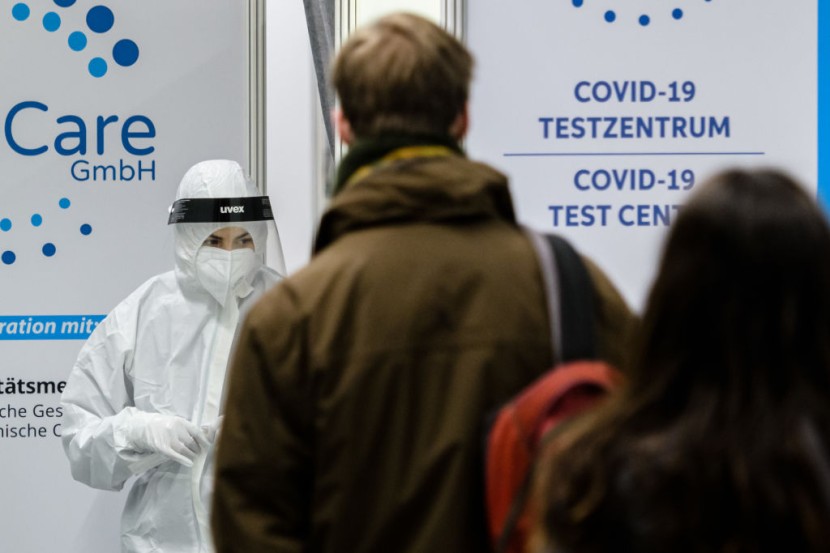
Germany recorded 80,430 new COVID-19 cases on Wednesday, breaking the previous highest single-day record of more than 76,000 in November.
The surge in new infections is blamed on the outbreak of the omicron variant, which is highly contagious yet mild. According to Robert Kotch Institute for Infectious Disease, Germany's vaccination rate is below 75% in its population, lower than other European countries.
Since the start of 2022, the seven-day incidence rate in Europe's largest economy has been constant. On Wednesday, it registered at 407.5 cases per 100,000 people, higher than 387.9 on Tuesday, as per Reuters.
According to the European Medicines Agency, which is in charge of evaluating and supervising medicinal products in the EU, the increase in the number of omicron variant cases across the continent forces COVID-19 to become an endemic disease like influenza, something humans can live with.
New Restrictions, Quarantine Period Imposed
Given the continued rising number of infections, Federal Chancellor Olaf Scholz and 16 premiers of federal states of Germany have agreed to implement new rules for restaurants and quarantine periods.
The decision formed on Friday follows the implementation of stricter contact restrictions in December, which will still be imposed.
New rules call for heightened restrictions in restaurants and bars. On top of proof of vaccination, customers will also be required to show proof of receiving a booster shot or a COVID-19 test result indicating negative results.
Germany's leaders also have agreed to cut down quarantine or self-isolation time from 14 days to 10 days if the person doesn't have or recovers from symptoms. If tested negative from the virus, the quarantine period can even get shortened to seven days.
People who got booster shots will no longer be required to undergo quarantine after being exposed to COVID-19 cases. The same applies to fully vaccinated individuals and those who recovered in the past three months, as per ABC News.
German leaders also "urgently recommended" the use of protective FFP2 masks in shops and public transportation.
Mandatory Vaccination Soon
Berlin Mayor Franziska Giffey believes that the new measures will provide "extra incentive to get boosters" that help further the vaccination rate in Germany.
Scholz and the German premiers urged citizens to take advantage of the government's vaccination program. They also underscored the need for booster shots for increased protection against omicron and other COVID-19 variants.
"Vaccination is important," said Scholz, who also announced that mandatory vaccination is also being discussed.
Critics earlier blasted Germany's new chancellor for having a weakened stance to implement a universal vaccine mandate. Scholz supported a concept before he took office in December, as per New York Times.
Opposition party member Hendrick Wuest, governor of North Rhine-Westphalia, remarked that state governments want to see Scholz's plans soon. But Scholz assured the public that he would campaign for such a vaccine mandate to be imposed. However, he does not want to pressure the lawmakers, encouraging them to vote according to conscience rather than party lines.
"I will vote for such a vaccine mandate and also advocate it," Scholz said.
Related Article : Germany Suffers Fourth Coronavirus Wave With 50,000 Cases Daily Amid Country's Struggle To Contain the Infection
© 2026 HNGN, All rights reserved. Do not reproduce without permission.








